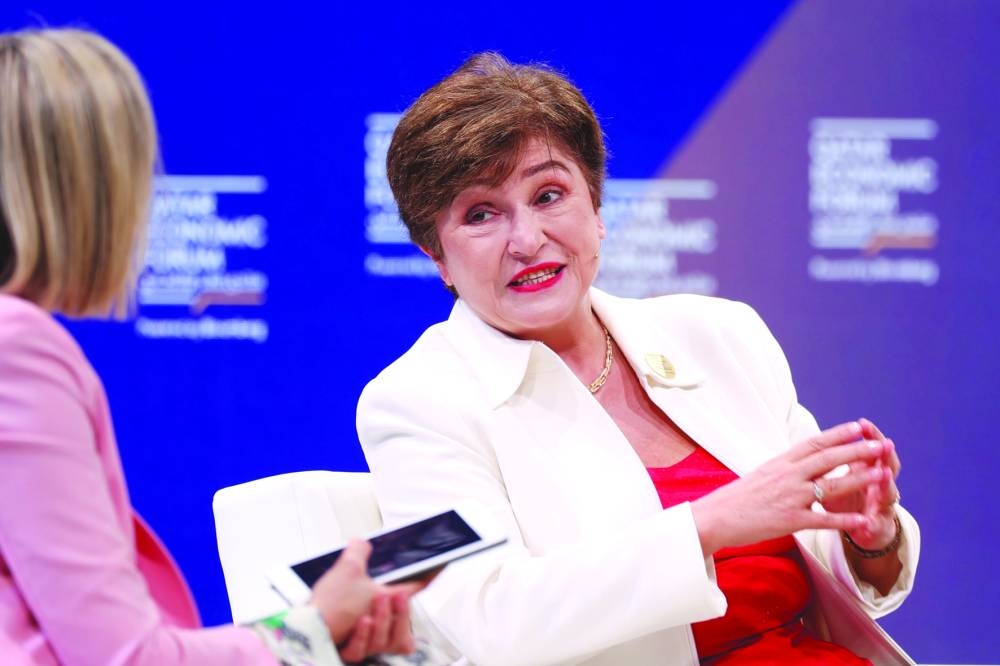International Monetary Fund (IMF) Managing Director Kristalina Georgieva expects global monetary policies to diverge after most major central bankers have spent the last year tightening credit conditions to slow price gains.
“We’re going to see after a period of convergence in monetary policy action — tightening rates, fighting inflation — some divergence” as, for instance, the US economy grows faster than the European Union, Georgieva said in an interview with Bloomberg Television yesterday.
Georgieva’s comments come ahead of a speech by Federal Reserve Chair Jerome Powell in Wyoming, which will be intensely monitored for clues on the path of interest rates. Central bankers from around the world are meeting in Jackson Hole for an annual three-day gathering, including Christine Lagarde, president of the European Central Bank.
“Central bankers will have to recognize that some specificity in how they approach the fight against inflation — and how they link this to their role in supporting growth and employment — how they approach that is going to be a matter of thorough assessment of national data.”
The IMF last month raised its outlook for the world economy this year, partly on expectations for a soft landing in the US, seeing global gross domestic product growing 3%. However, it warned of lingering downside risks from higher interest rates and Russia’s war in Ukraine.
Georgieva also highlighted the cost of economic fragmentation, which she wrote about earlier this week in an article in Foreign Affairs, describing it in the piece as “a process that begins with increasing barriers to trade and investment and, in its extreme form, ends with countries’ breaking into rival economic blocs.”
The fund has warned that increasing restrictions on the trade of goods and services could reduce global GDP by up to 7%, while foreign direct investment could be channelled into competing groups of countries, hurting output.
These warnings come amid worries about rising economic and political competition between the US and China. Earlier this week, the Brics group of countries said it plans to more than double its membership, adding Saudi Arabia, United Arab Emirates and Egypt — among others — to the emerging-market bloc with heavyweights China, India and Russia.
Meanwhile, the greenback rallied towards a three-month high as traders mulled the possibility of higher-for-longer interest rates ahead of Federal Reserve Chair Jerome Powell’s speech at the Jackson Hole symposium.
The Bloomberg Dollar Spot Index climbed as much as 0.2% to the highest since early June as investors readied for cues from Powell on the Fed’s future steps to fight inflation and how they might be more hawkish than peers. The dollar gained against every major currency, with the risk-sensitive South Korean won and the Swedish krona among the worst losers.
“The relative fundamental story continues to move in favour of the greenback,” Win Thin, global head of currency strategy at Brown Brothers Harriman & Co in New York, wrote in a note. “The recent FOMC, European Central Bank and Bank of Japan decisions as well as the ongoing economic data underscore the divergence theme and so further dollar gains seem likely.”

Kristalina Georgieva, managing director of the International Monetary Fund.
